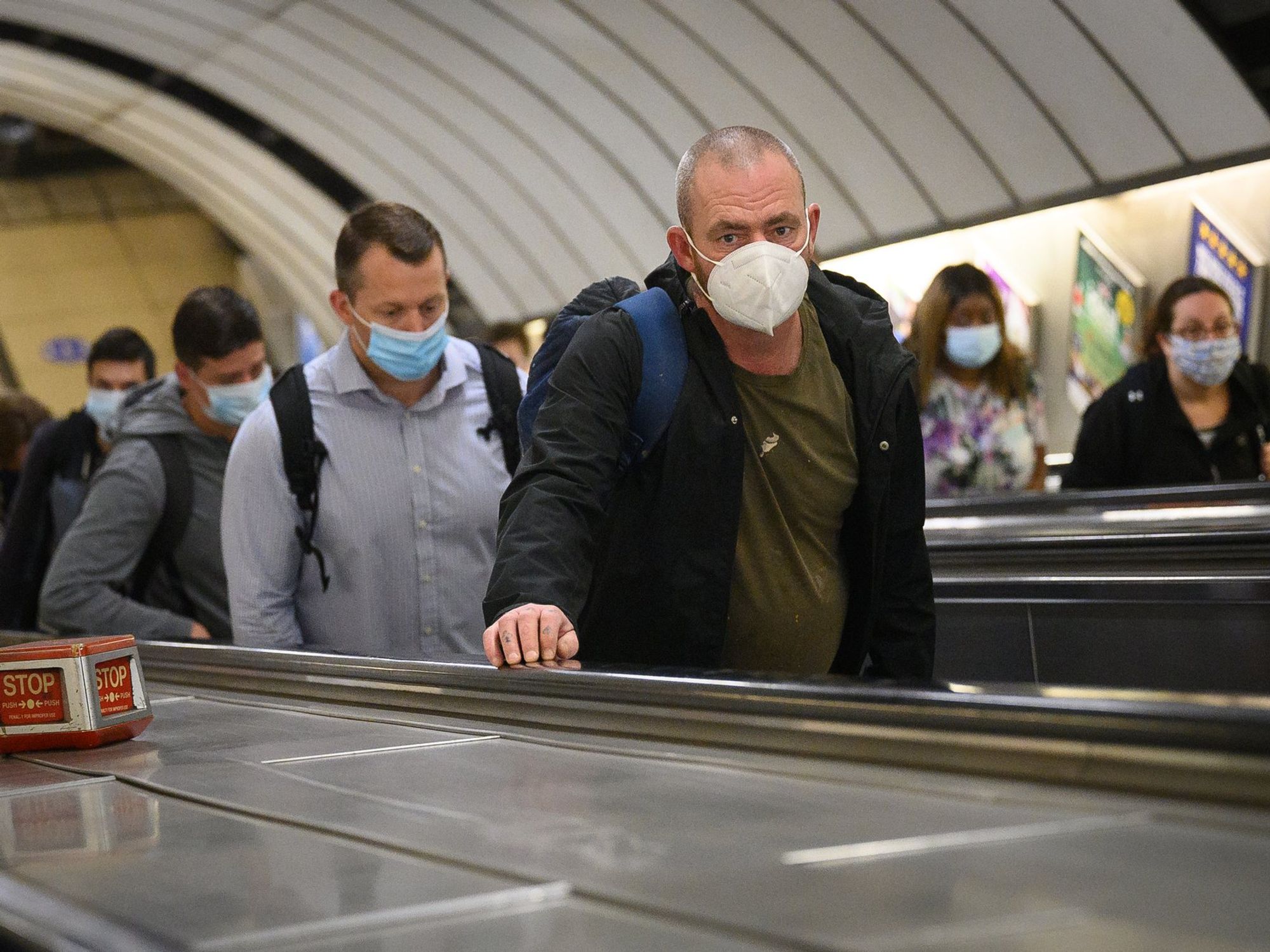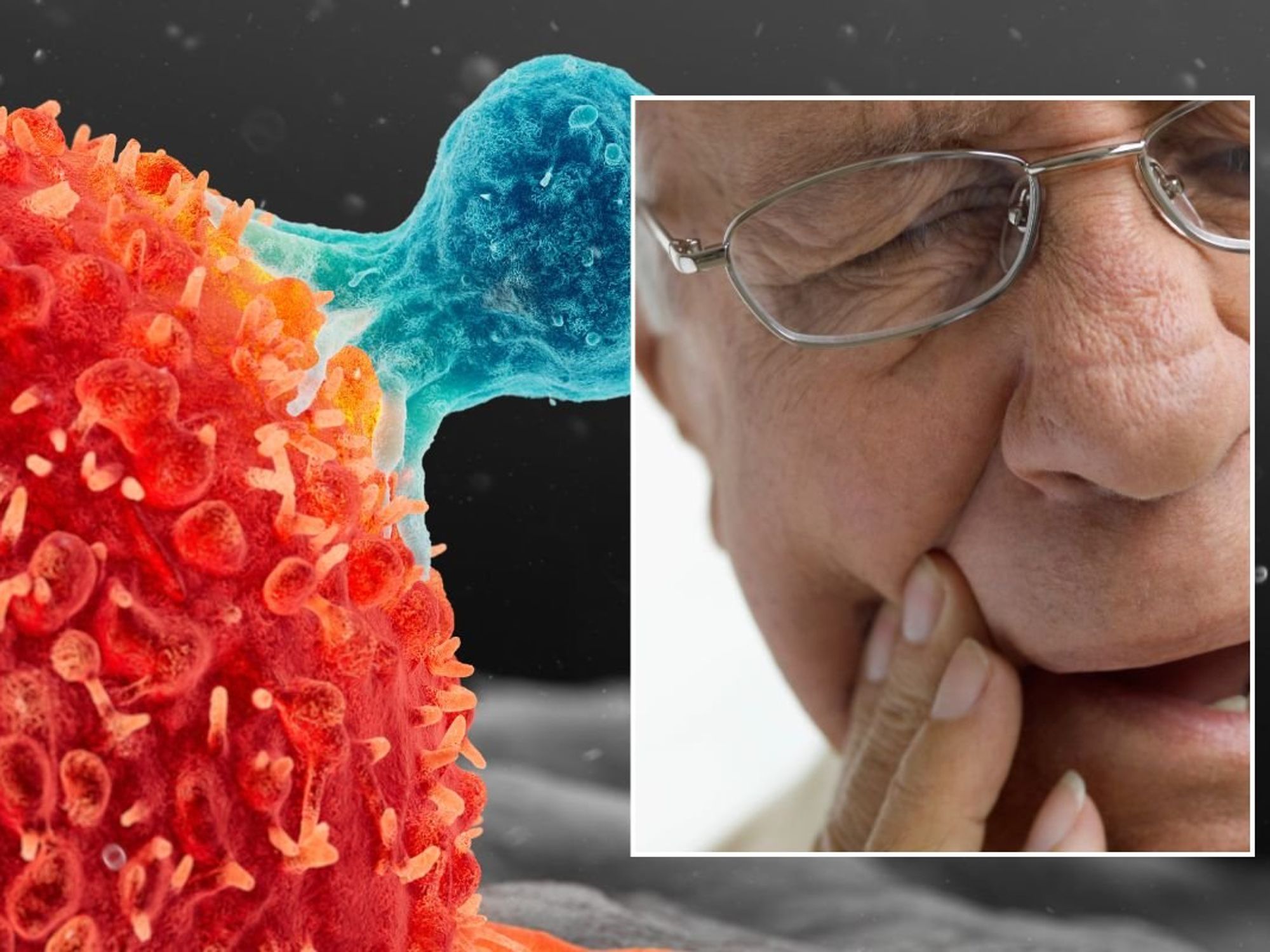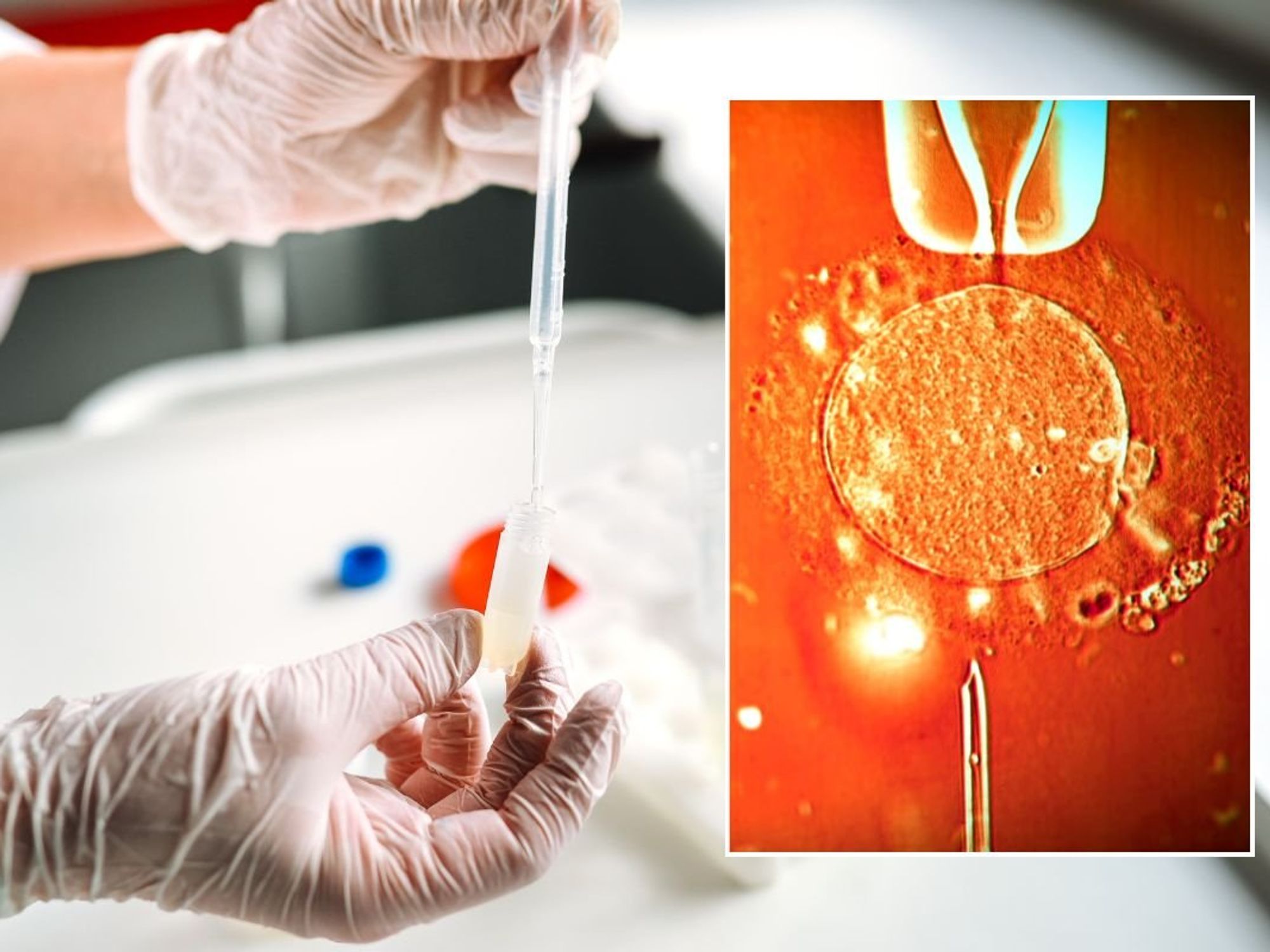'Speak to your doctor!': Patient warns of cholesterol symptoms on the face that 'do not go away'

Patient is urging people to get checked out if they notice cholesterol growths on their face
|Getty Images

The patient's doctor recommended statins to help clear up the symptoms but said it was a "long shot"
Don't Miss
Most Read
A patient experiencing an outburst of cholesterol on the face fears their symptoms are here to stay.
The patient's confession is a chilling reminder that the waxy, fat-like substances found in the cells can bubble up to the surface.
Although these deposits are often benign, they can be devilishly difficult to treat, as one netizen can attest.
Taking to Reddit, the user wrote: "Cholesterol build up in the small veins/capillaries in your eyelid. I have them. There isn't a lot to do about them from a skin care POV [sic]."
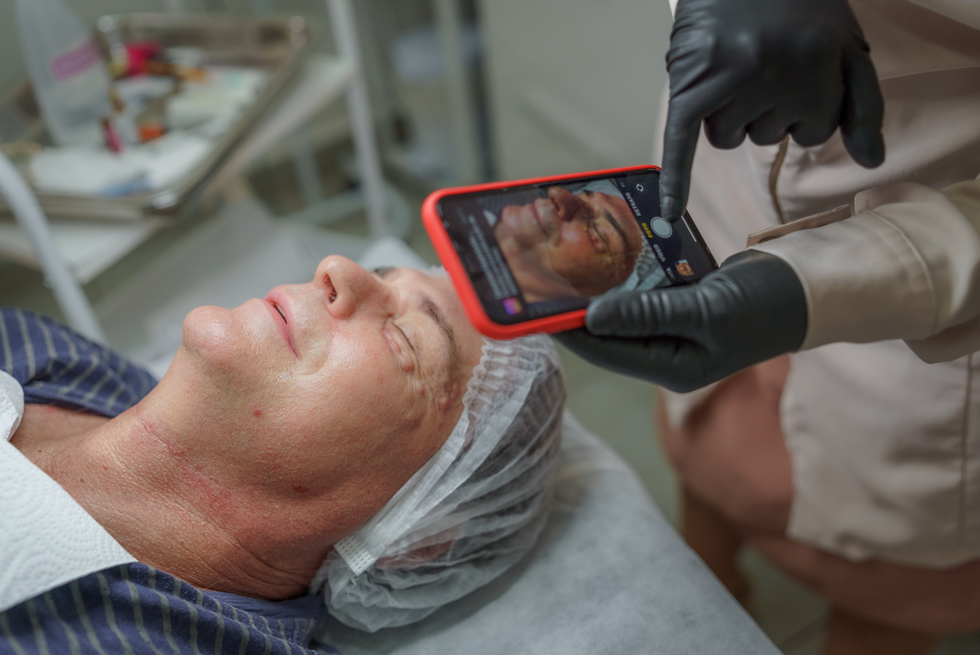
if you have familial hypercholesterolaemia, high cholesterol growths can form around the eyelids
| Getty ImagesThe patient urged anyone experiencing the symptom to "speak to your doctor", adding: "You could have cholesterol-related problems or not but it's better to get it checked out & [sic] be sure."
The unnamed user explained that their cholesterol levels are within normal range and they're "idiopathic".
The patient's doctor offered to put them on statins to try to see if they'll help, but said it was a "long shot", adding: "I'm watching my diet a lot more closely & [sic] it has helped shrink them slightly over the past few months but they're definitely not going away in a hurry."
Cholesterol deposits around the eyes - everything you need to know
Cholesterol deposits that form around the eyelids are called xanthelasma.
These yellow growths are usually harmless but they can be a sign of heart disease, warns the American Academy of Ophthalmology.
The growths have also been linked to a genetic condition called familial hypercholesterolaemia. People who have FH have inherited high levels of cholesterol from their parents.
The NHS policy on treating xanthelasma is that the lesions can usually be left alone.
However, as the patient's story attests, these growths can stick around.
LATEST DEVELOPMENTS
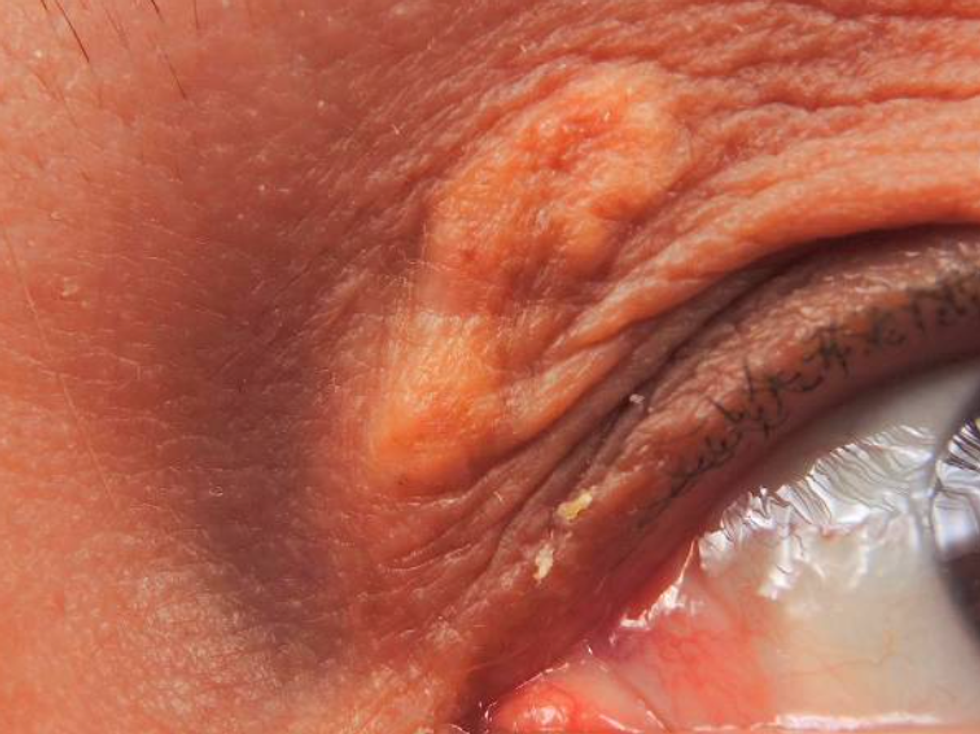 Xanthelasma are deposits that form on the eyelids | Getty Images
Xanthelasma are deposits that form on the eyelids | Getty Images Some patients may therefore seek therapy for cosmetic reasons.
Treatment options include surgical excision, laser therapy, and topical trichloroacetic acid (TCA).
Lowering lipid levels can be beneficial in managing this condition.
According to the NHS, high cholesterol levels can be lowered by:
- Eating less fatty food
- Exercising more
- Stopping smoking








